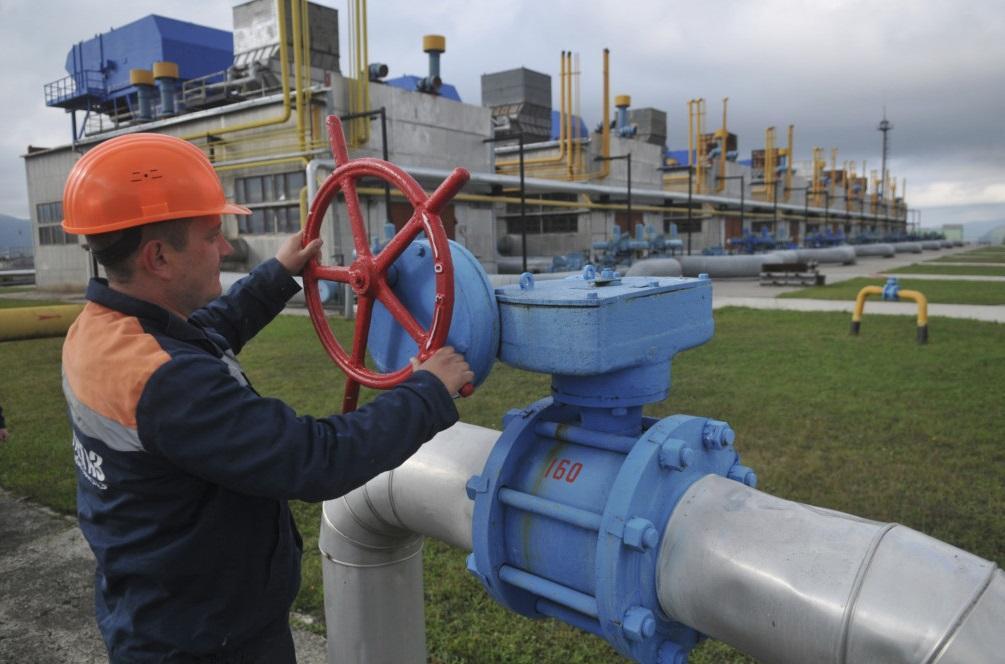
As the world rushed to condemn the Russian invasion of its smaller neighbor, the wealthy Gulf Cooperation Council (GCC) countries, including Saudi Arabia and the United Arab Emirates (UAE), have largely kept quiet. Middle East experts say their reticence is understandable given what’s at play - energy, money and security.
The Russian Foreign Ministry has announced that the UAE and Russian foreign ministers would meet today in Moscow to discuss “further expanding multifaceted Russia-UAE relations.”
Gulf power house Saudi Arabia has not reacted to the invasion, like the UAE, Bahrain and Oman. Kuwait and Qatar have only denounced the violence, stopping short of criticizing Moscow.
“It is not only the economic ties that are growing, but also the security ties of these states with Moscow,” said Anne Gadel, a Gulf expert and contributor to the French think-tank Institut Montaigne.
Gulf countries “understand that they need to diversify their alliances to compensate for the perceived withdrawal of the United States from the region,” Gadel told AFP.
Trade between Russia and the GCC countries jumped from around $3 billion in 2016 to more than $5 billion in 2021, mostly with the UAE and Saudi Arabia, official figures show.
The UAE, in particular Dubai, has been long seen as a magnet for Russian investment, and a vacation destination for the Russian elite.
As major players in the energy markets, most GCC states have a relationship with Russia as fellow producers.
Riyadh and Moscow are leading the OPEC+ alliance, strictly controlling output to buoy prices in recent years.
“Arab members of OPEC are in a tough spot diplomatically, as maintaining” the OPEC+ deal, which controls production, “is clearly at the forefront of their considerations”, said Ellen Wald, senior fellow at the Atlantic Council think-tank.
“Gulf countries fear damaging this relationship and seek to maintain Russian participation in OPEC+... If Russia left the group, the entire agreement would probably collapse.”
Despite calls by some major oil importers for crude producers to boost supply and help stabilize soaring prices, Riyadh, the world’s top exporter, has shown no interest.
“Staying silent on Russian action in Ukraine is probably the best course for this at the moment,” Wald said. “But this pragmatic stance may become untenable if pressed on their position by Western leaders.”
The OPEC+ group may have to agree to step up output at their meeting this week to calm the global oil market, with prices fluctuating widely, and having exceeded $100 a barrel for the first time since 2014 from the greater risk of oil supply disruptions.
The OPEC+ group will meet on March 2 to discuss the latest market developments and decide how much oil to pump in April.
The group reduced its daily crude oil production by approximately 10 million barrels in April 2020 due to the sharp decline in demand following the emergence of the COVID-19 pandemic. As global economies and oil demand started to recover, the group also began to ease these cuts in April 2021.
Although global economies and oil demand started to recover from the worst of the pandemic, supply lagged behind demand, leading to oil price rises. Despite calls from some countries led by the U.S. for more output, the group did not relent and stuck to the existing production decision of 400,000 barrels per day (bpd).
According to the International Energy Agency (IEA), the group’s production capacity is currently around 900,000 barrels behind monthly output targets.
Matt Stanley, director of the commodity brokerage firm Star Fuels, said that after Russia’s attack on Ukraine, Western countries were not expected to impose any energy-related sanctions on Moscow, although the general situation raises concerns in the market.
As Russia is the world’s second-biggest oil producer and provides nearly 40 percent of natural gas to Europe, he warned that “any sanctions on energy production are going to cause a huge spike, by how much is anyone’s guess but it does seem that an aggressive headline is worth about $5 per barrel.”